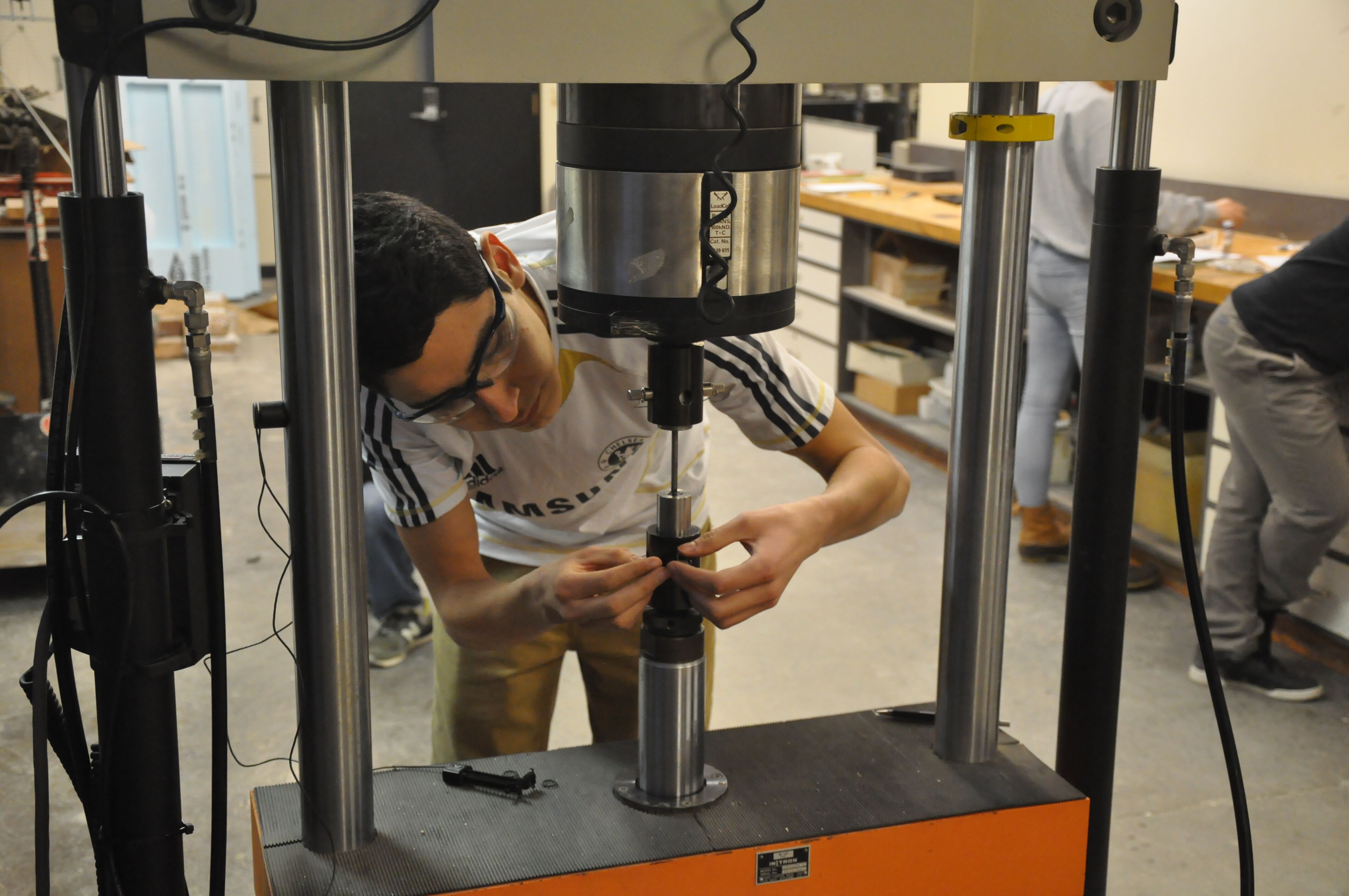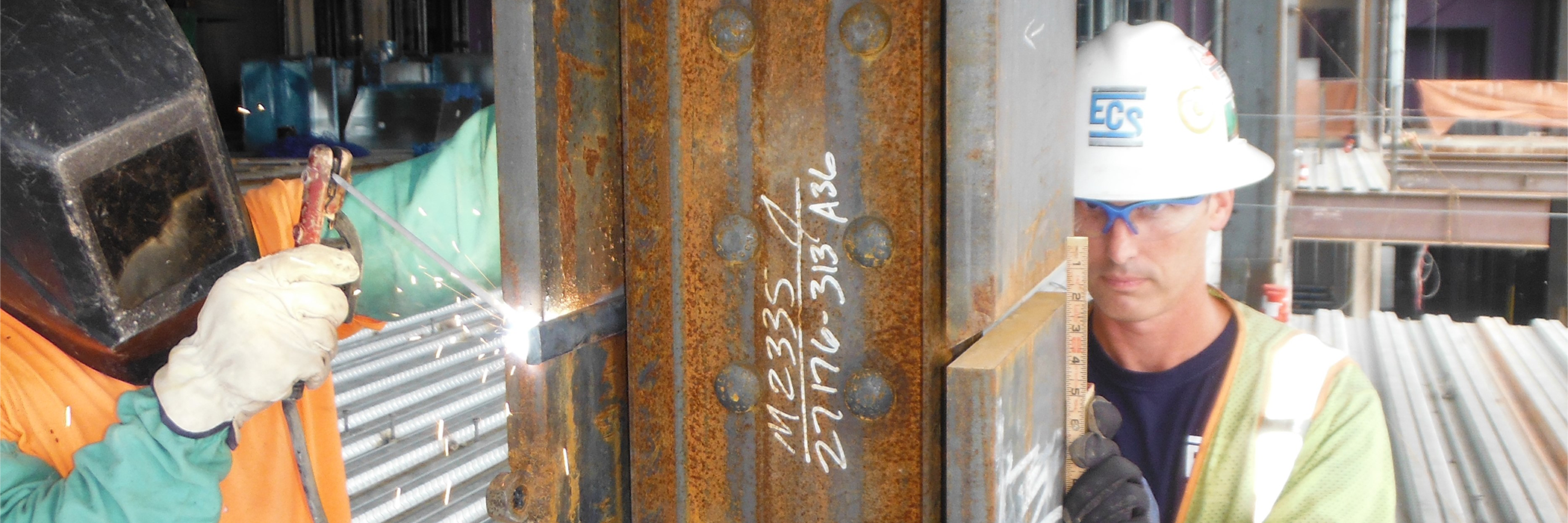Specialist Materials Test Lab for Industry-Leading Top Quality Standards
Wiki Article
Accuracy Testing of Products for Toughness and Resilience
Precision screening of materials for stamina and durability plays a vital function in different sectors, including design, manufacturing, and construction. This procedure involves subjecting various products to extensive analyses to determine their capability to hold up against exterior forces and maintain their stability gradually.In the globe of materials testing, accuracy is extremely important. Researchers and engineers count on exact and trustworthy data to make educated choices concerning material selection, style optimization, and item efficiency. By using sophisticated screening strategies and cutting edge tools, specialists can analyze the strength and longevity of a broad variety of materials, such as metals, composites, ceramics, and polymers.
This introduction will give insights right into the importance of precision screening, the kinds of materials frequently subjected to screening, the key parameters for strength evaluation, and the techniques utilized for durability assessment. It will certainly likewise highlight the applications and advantages of conducting accuracy testing in numerous industries.
Relevance of Accuracy Testing
Accuracy screening is a necessary action in examining the stamina and toughness of products, providing accurate and dependable information for notified decision-making. The quality and performance of materials play an essential duty in making sure the security and long life of products and frameworks when it comes to manufacturing and building and construction markets. Consequently, carrying out accuracy testing is of utmost relevance to determine whether the products fulfill the required requirements and requirements.By subjecting materials to strenuous screening engineers, procedures and makers can evaluate their mechanical buildings, such as tensile strength, firmness, and influence resistance. This details allows them to ensure that the materials can stand up to employed pressures and environmental problems without failing or destruction over time. Furthermore, precision testing helps identify any possible flaws or weak points in the products, allowing suppliers to make necessary improvements or modifications to boost efficiency and dependability.
Furthermore, precision testing offers objective and quantifiable information that can be used to make and compare different products educated decisions regarding their viability for certain applications. When choosing materials for vital components or frameworks where failure can have serious consequences., this details is particularly valuable.
Kinds of Materials Subjected to Evaluating
Various materials undergo testing for strength and toughness. This screening is important to ensure that the products can hold up against the needs of their intended applications and to establish their expected life expectancy. The kinds of products subjected to screening vary and consist of metals, polymers, porcelains, compounds, and building and construction products.Metals, such as steel and light weight aluminum, are generally checked for their tensile toughness, hardness, and resistance to deterioration. materials test lab. These examinations assist establish their suitability for usage in structural applications, machinery, and different commercial processes

Ceramic materials, such as porcelain and ceramic floor tiles, are checked for their compressive stamina, warmth resistance, and sturdiness. These tests ensure that porcelains can hold up against extreme environments and high temperatures, making them suitable for applications in the construction, electric, and aerospace markets.
Compounds, which are products made from a combination of various elements, go through various tests to evaluate their mechanical buildings, such as strength, tightness, and impact resistance. Compound materials are commonly utilized in markets such as aerospace, vehicle, and sporting activities tools production.
Building materials, including concrete, timber, and asphalt, undertake testing to establish their load-bearing capability, toughness, and resistance to weathering. These tests are critical in ensuring the safety and longevity of roadways, frameworks, and bridges.
Trick Specifications for Strength Evaluation
One of the key specifications for stamina assessment is the tensile strength, which measures a product's capacity to resist drawing forces without damaging or deforming. One more crucial parameter is the compressive stamina, which reviews a material's my website resistance to crushing or being squeezed with each other. By examining these essential criteria, scientists and designers can accurately analyze the strength and toughness of products, enabling them to make enlightened choices in various industries such as aerospace, automobile, building and construction, and manufacturing.

Techniques for Sturdiness Assessment
Longevity evaluation methods are necessary for examining the long-term efficiency and reliability of materials. These techniques are vital in determining the capacity of products to hold up against different ecological conditions and mechanical stresses over prolonged amount of times. One commonly made use of technique is sped up aging, which includes subjecting products to sped up ecological conditions such as heats, humidity, and UV radiation. This enables scientists to mimic the results of long-lasting exposure in a shorter duration, enabling them to examine material destruction and predict its performance with time.An additional method is cyclic screening, which involves subjecting materials to duplicated loading and discharging cycles. This aids review the material's fatigue resistance and its ability to withstand repeated anxiety without failing. By assessing the stress-strain action of the product throughout cyclic screening, scientists can recognize prospective original site powerlessness and examine the product's durability.
In addition, non-destructive testing techniques such as ultrasonic testing and infrared thermography can be employed to assess the interior integrity and spot any type of problems or damage in the material. These strategies provide important information about the product's resilience without triggering any type of damage to it.
Applications and Benefits of Precision Screening
Precision testing plays a crucial function in assessing the strength and resilience of materials, allowing researchers and engineers to obtain exact and reliable data for assessing their performance. The applications of accuracy screening are extensive and can be found across various industries, consisting of aerospace, vehicle, construction, and manufacturing.Among the essential benefits of accuracy testing is its capacity to determine possible weaknesses or problems in products. By subjecting materials to strenuous and controlled screening, any type of problems or susceptabilities can be detected prior to they lead to tragic failures. This allows makers to make necessary renovations or adjustments to improve the overall top quality and toughness of their products.
Precision screening likewise helps in figuring out the optimal style and composition of materials. By examining various variations and setups, designers can identify one of the most suitable products for specific applications. This causes improved performance, performance, and cost-effectiveness in various markets.
Furthermore, accuracy testing gives valuable data for the advancement and enhancement of materials and producing procedures. materials test lab. It permits researchers to obtain a deeper understanding of product habits under various problems, leading to the advancement of brand-new products with enhanced performance, durability, and strength qualities
Final Thought
In conclusion, accuracy testing plays an important function in assessing the strength and longevity of materials. More Help By subjecting different types of products to extensive testing, vital specifications for strength evaluation can be identified.Accuracy testing is a crucial step in evaluating the stamina and toughness of products, providing exact and reputable information for informed decision-making.Different products are subjected to testing for toughness and resilience. The types of materials subjected to screening are diverse and consist of metals, polymers, ceramics, compounds, and building products.
By examining the stress-strain reaction of the material during cyclic testing, scientists can recognize possible weak points and examine the product's sturdiness.
In verdict, precision screening plays a crucial role in assessing the toughness and longevity of products.
Report this wiki page